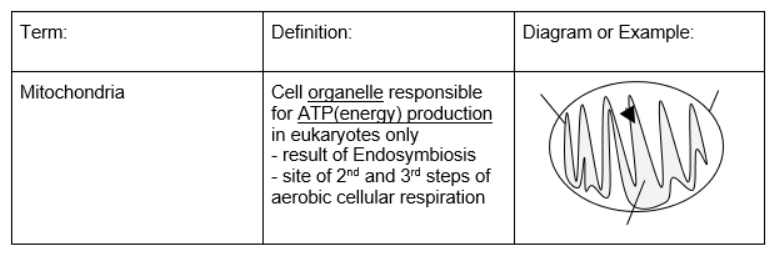The VCE Bio exam is in three weeks. Are you ready?
Well fear not! With a bit of dedication and discipline, you can get a great score even if you’ve only started studying today.
Here’s how…
1. Know the Study Design
I wish someone had told me to look at the Study Design during Year 12.
Do yourself a favour, and click this link. On pages 21 – 23, you’ll find a list of everything you need to know for Unit 3. Page 26 – 28 covers Unit 4.
This document is the rulebook for your teachers and the examiners. Most teachers don’t tell their students about it at the start of the year because they don’t want to scare you. But NOW you know the curriculum, so it shouldn’t be too scary. Read these pages and make sure you know what each point on the Study Design is talking about.
If there’s anything unfamiliar in those pages – ask your teacher about it, consult your notes, google it, or ask someone on the VCE Bio forums!
So now you’re looking at the study design, it’s dense, it’s scary – how the hell are you going to deal with it?
Start by reading it line by line, circle anything that sounds unfamiliar to you. Be brave; it’s better to admit to being unsure now than to get to the exam and be unsure.
Then it’s time for step two.
2. Know your terms
A glossary for biological terminology is your most powerful in the exam. Use this format if you haven’t already started a concept list:
Use your notes, the textbook, the ATAR Notes VCE Bio book, and even google to help fill in each of these boxes.
Just like I have here, underline the key parts of the definition. It’s good to practice identifying these because VCAA marks your answer based on a few keywords (even if they do require you to answer with a full sentence).
Using this or your own format make sure you’ve covered
1. Every Bio word in the Study Design
2. Every Bio word implied by the Study Design. For example, active sites are relevant to rational drug design – this means you should have it in your glossary!
3. Any word you or your teacher says is important!
You should have about 50 terms for every area of study on the Study Design.
If there was anything completely unfamiliar to you before, once you know all your terms, it shouldn’t be quite as daunting.
3. Make your own notes
A great textbook or summary of the content is great during the year BUT the VCE Bio exam ISN’T OPEN BOOK.
YOU need to know the content!
When you physically write out notes, your brain is much more likely to absorb the content than if you were typing and especially more than if you were passively reading the content.
In the next 3 weeks, you need to be writing about the VCE Bio concepts all the time.
You may choose to write out notes for each Area of Study one per week for the next 3 weeks. This is also good practice for extended response questions.
Note – the exams in the past few years have erred on the side of many 1 point marks in the extended response questions rather than paragraph-type 4 or 5 mark questions. So it’s best to practise using as few words as possible while making your notes than to write pages and pages.
Okay, so you’ve got a glossary, you’ve made your notes, what else is there… You were probably itching for me to say this from the beginning, but now is when you should start practice exams.

4. JUST DO IT!! (Practice exams, that is)
Start with the Unit 3 practice exams from 2002 – 2012 while you’re still finishing off your Unit 4 notes. Don’t do too many in a row, and if you’re short on time just do multiple choice questions on the go.
Mark your own exams and make sure you know why the VCAA would or wouldn’t give you the mark.
If you’re getting great marks on the exams – do them in LEGENDARY MODE.
By which I mean, assign a mark out of 10 to your confidence for each answer. For example, if you answered Q1 with D and you were pretty sure of yourself, write 9/10 for your confidence next to that answer. But for Q2, if you’re taking a 50/50 stab at the answer, write 3/10 next to your choice.
When you do lose marks, keep track of how confident you were to identify areas that you are overconfident or underconfident in. This will help you spend your revision time better.
Don’t worry about doing every last one. Leave at least to the 2014 and 2015 ones in the week before the exam.
Lastly…
5. REVISE!
Keep track of what you’ve been getting wrong and spend time on that content. Add words to your glossary or change your notes. You are more likely to remember content you’ve completely rewritten in your notes than where you’ve just added a word or crossed out something.
Good luck, and keep an eye on the ATAR Notes website for more last minute tips for VCE Bio success!









Comments
No comments yet…